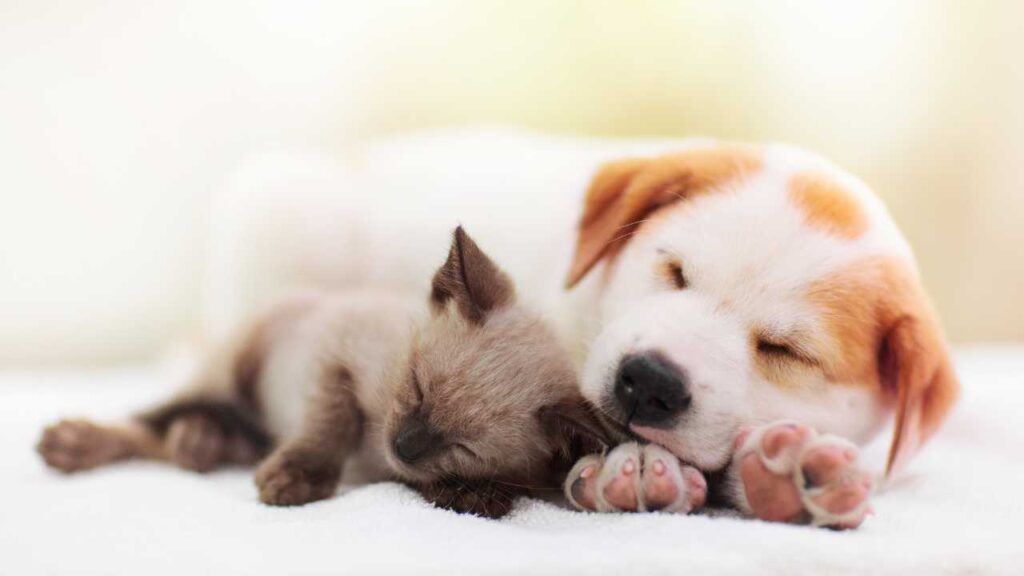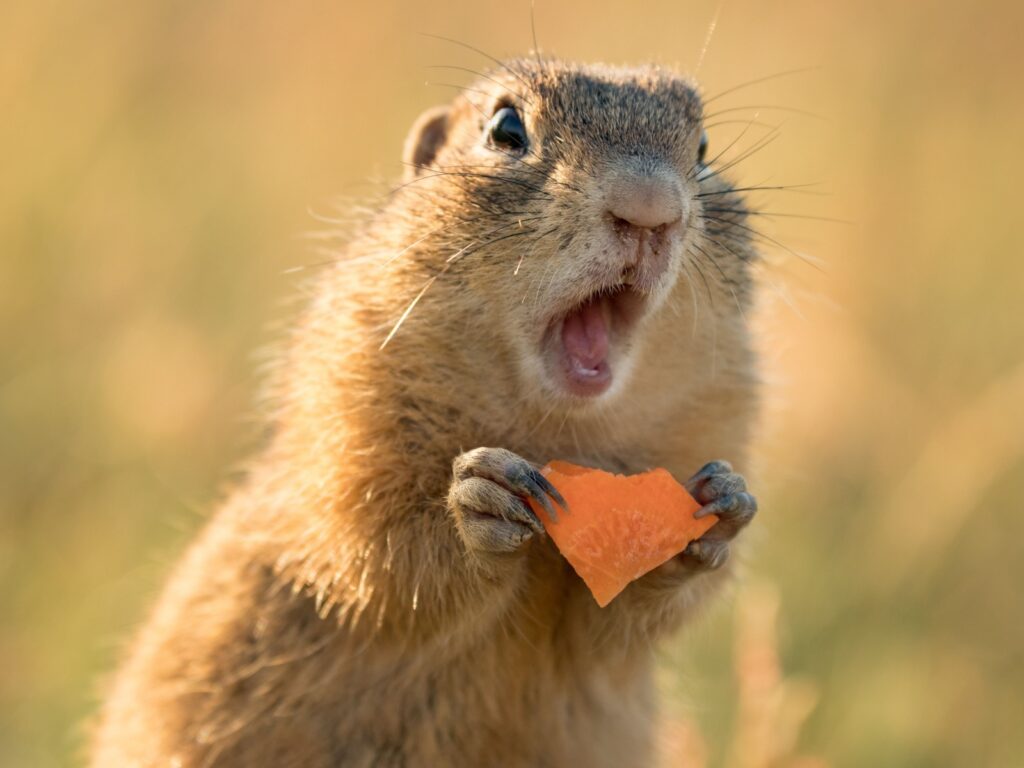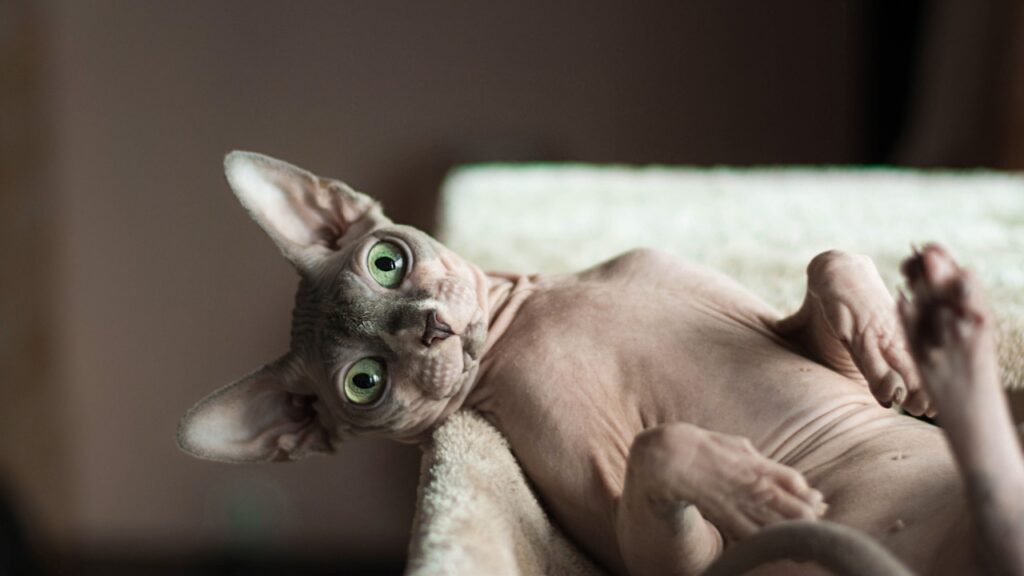Have you ever wondered what your furry friend gets up to while you’re snoozing away? It turns out that our pets have some fascinating sleep habits that might surprise you. From the adorable to the downright bizarre, here are 12 things you probably didn’t know about your pet’s sleep habits.
1. Cats spend up to 16 hours a day sleeping
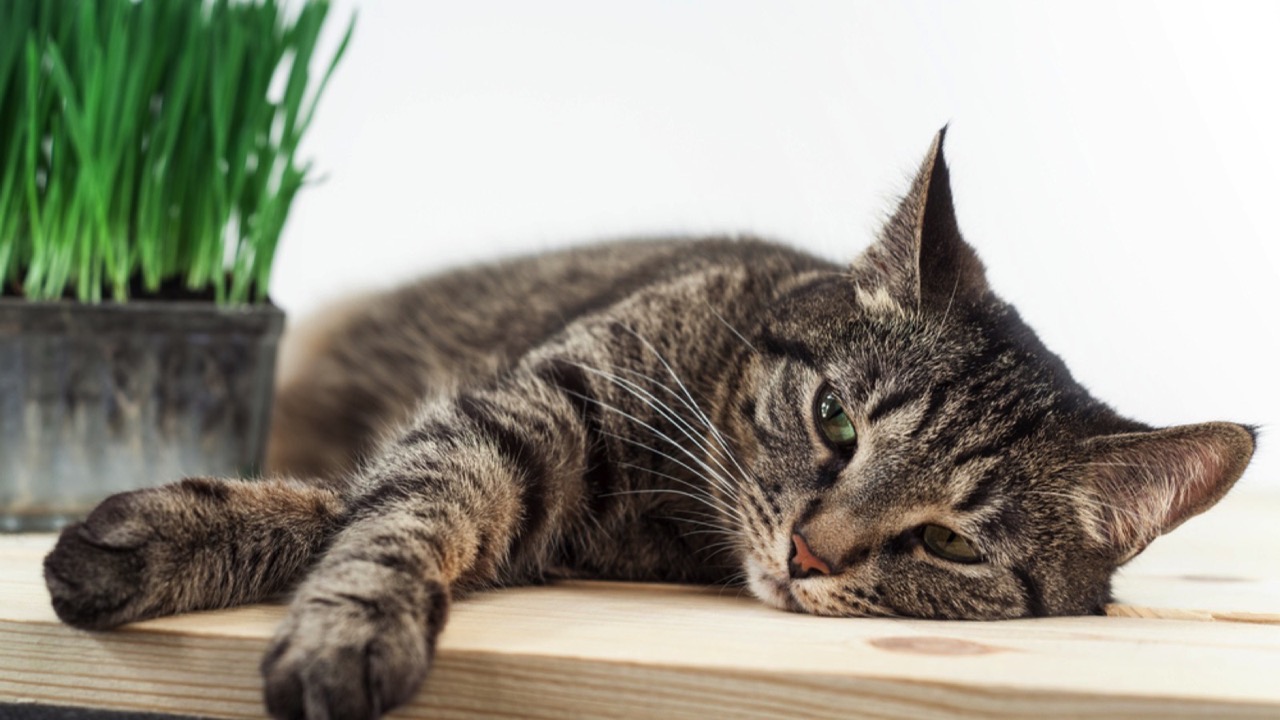
That’s right, your feline friend spends a whopping two-thirds of their day catching some Z’s. Cats are known for their love of napping, and they can sleep anywhere from 12 to 16 hours a day. This is because cats are natural predators and need to conserve energy for hunting.
2. Dogs have similar sleep patterns to humans
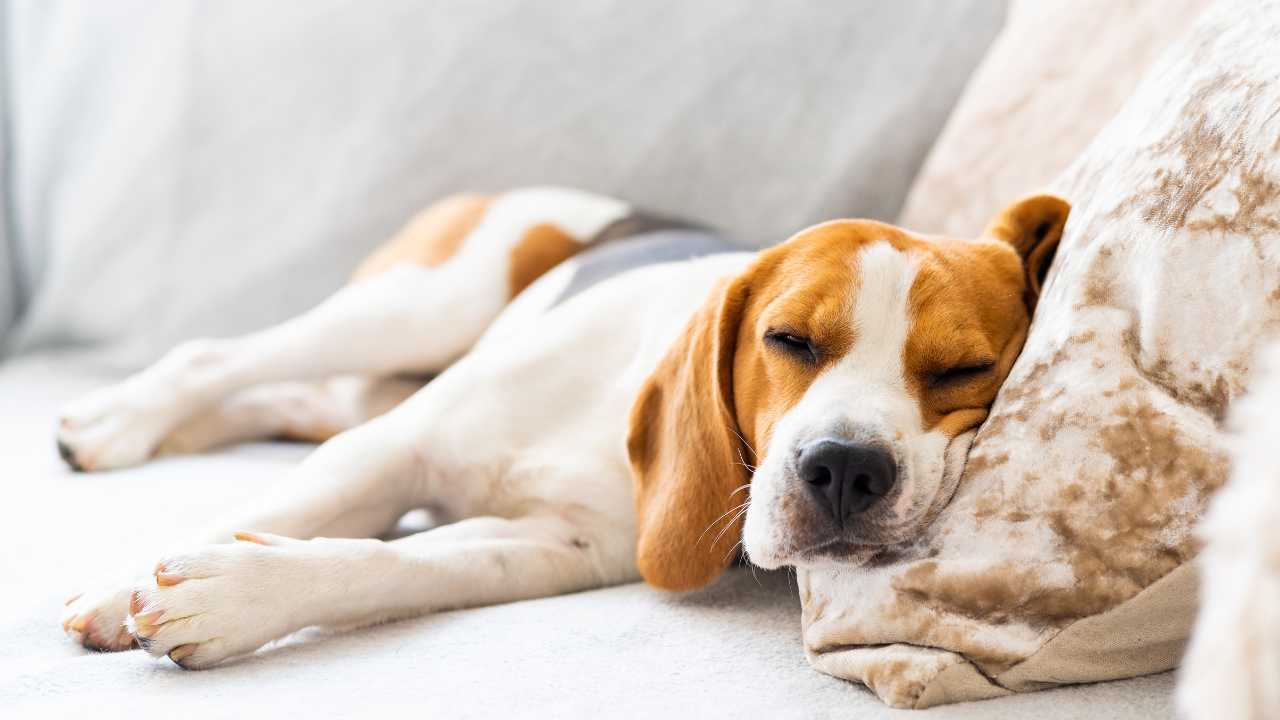
Just like us, dogs have different stages of sleep, including REM (rapid eye movement) sleep. During REM sleep, dogs may twitch, move their paws, or even bark or whimper. This is because they’re dreaming, just like we do!
3. Pets can suffer from sleep disorders

Just like humans, pets can suffer from sleep disorders such as insomnia, sleep apnea, and narcolepsy. If you notice your pet having trouble sleeping or experiencing unusual sleep behavior, it’s important to take them to the vet for a checkup.
4. Puppies and kittens need more sleep than adult pets

Just like human babies, puppies and kittens need more sleep than their adult counterparts. Newborn puppies can sleep up to 22 hours a day, while kittens can sleep up to 20 hours a day. As they grow older, they’ll gradually sleep less.
5. Some pets, like birds, can sleep with one eye open
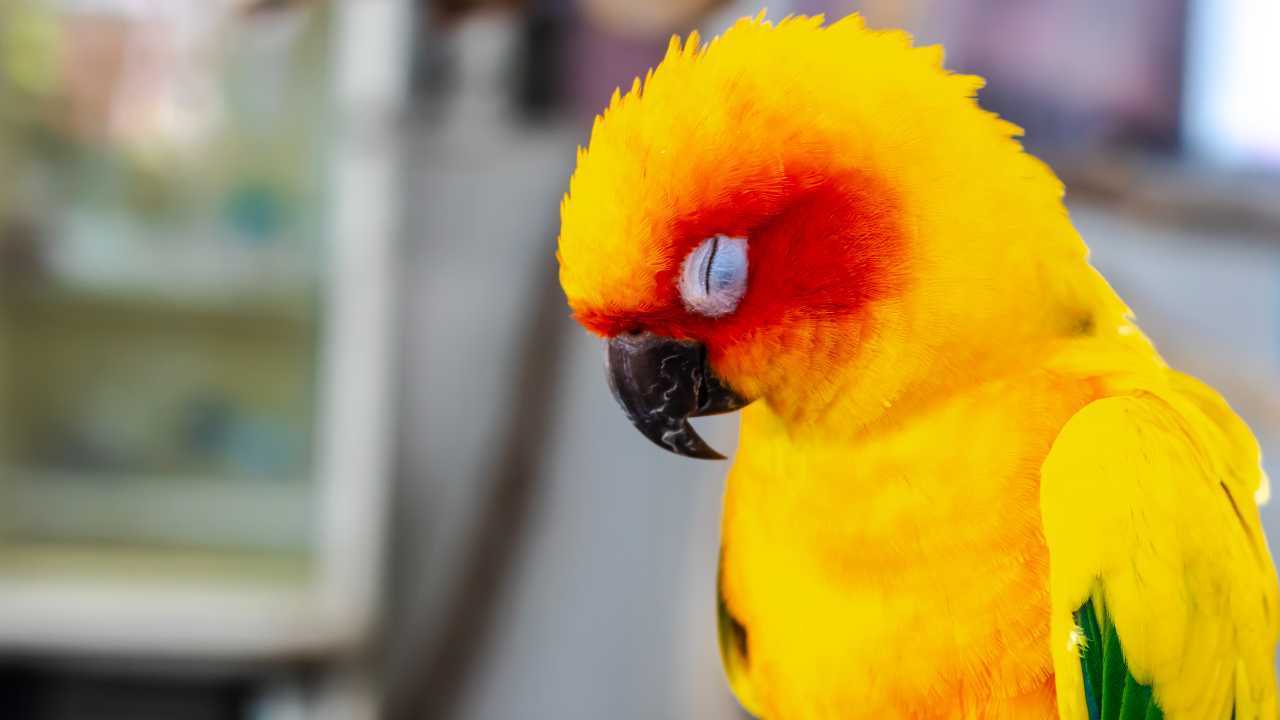
Some birds, such as parrots and canaries, have the ability to sleep with one eye open. This is called unihemispheric slow-wave sleep and allows them to keep watch for predators while still getting some rest. Half of their brain remains alert while the other half sleeps.
6. Pets can have sleep preferences just like humans
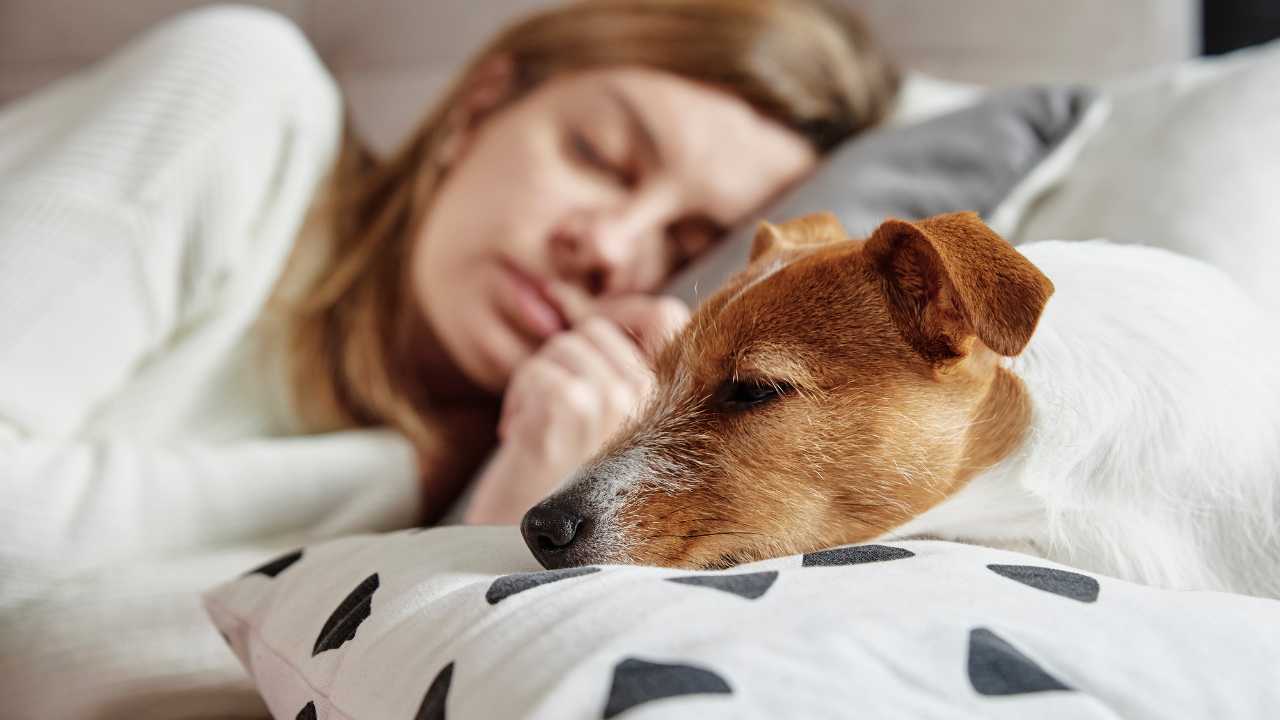
Some pets prefer to sleep in a specific spot or position, just like we do. Cats, for example, often like to sleep in high places where they feel safe and secure. Dogs may prefer to sleep on a soft bed or cuddle up next to their owner.
7. Hamsters are nocturnal and sleep during the day
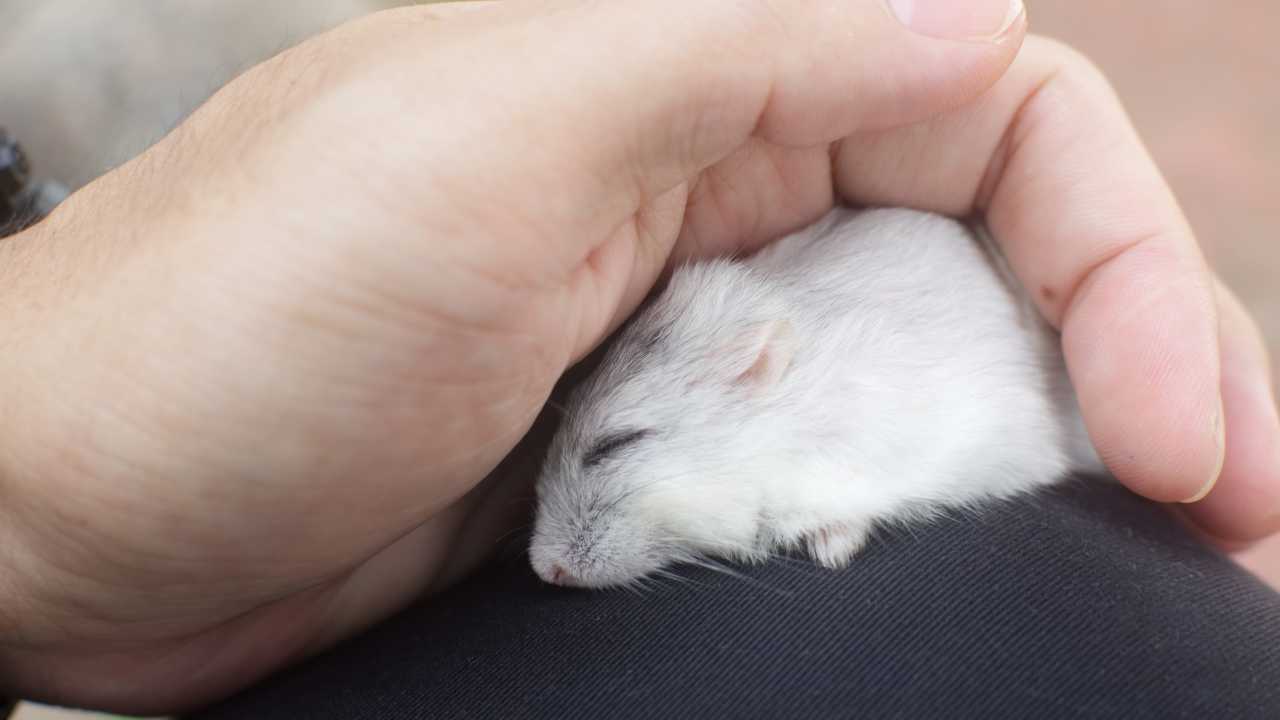
Unlike cats and dogs, hamsters are nocturnal animals, meaning they sleep during the day and are most active at night. If you have a pet hamster, you may hear them running on their wheel or playing with their toys while you’re trying to sleep.
8. Pets need a consistent sleep schedule
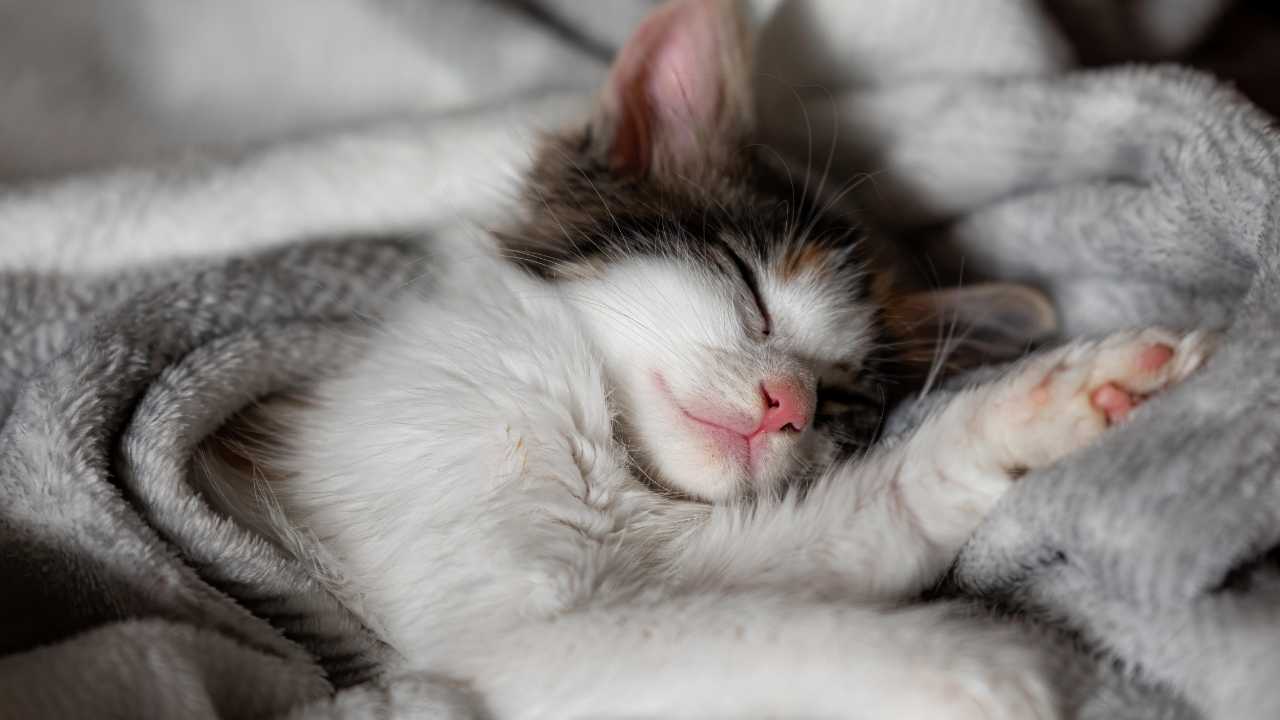
Just like humans, pets thrive on a consistent sleep schedule. Irregular sleep patterns can lead to health problems and behavior issues. Try to stick to a regular feeding and exercise schedule to help regulate your pet’s sleep.
9. Fish do sleep, but not in the same way as other pets
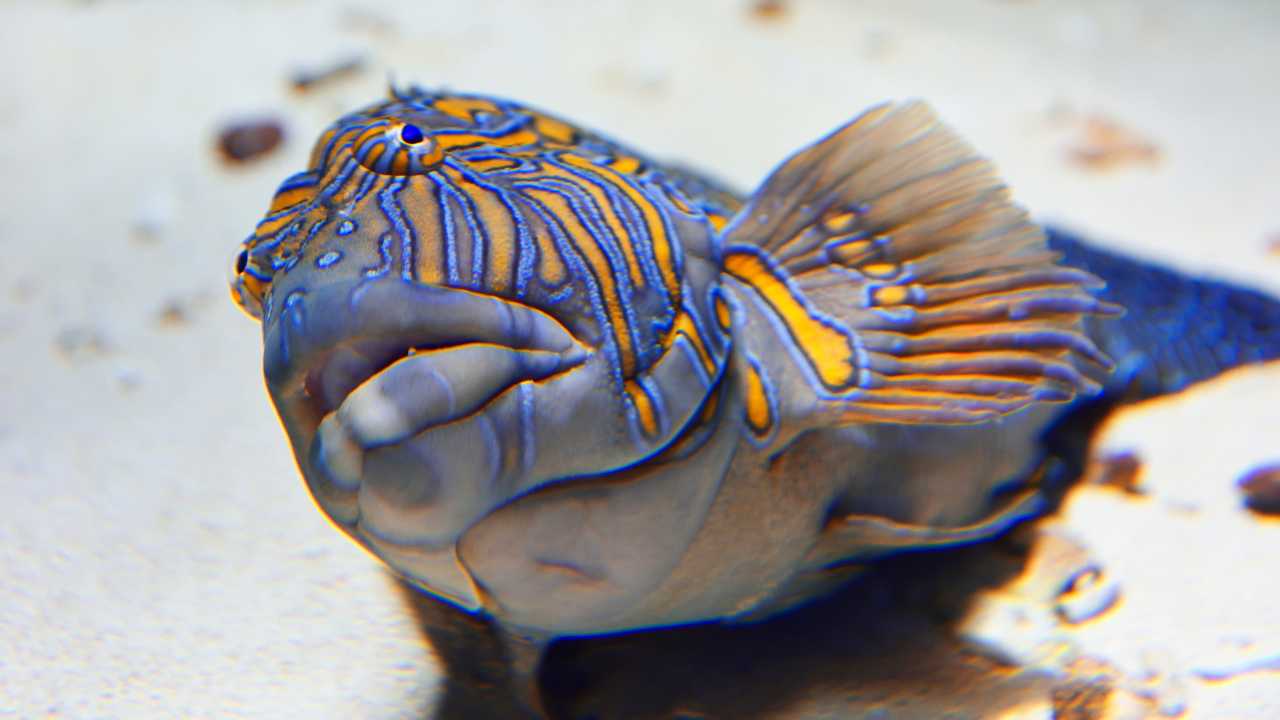
While it may not look like it, fish do indeed sleep. However, they don’t have eyelids, so they don’t close their eyes. Instead, they become less active and may float in place or hide in the plants or decorations in their tank.
10. Pets can dream, just like humans
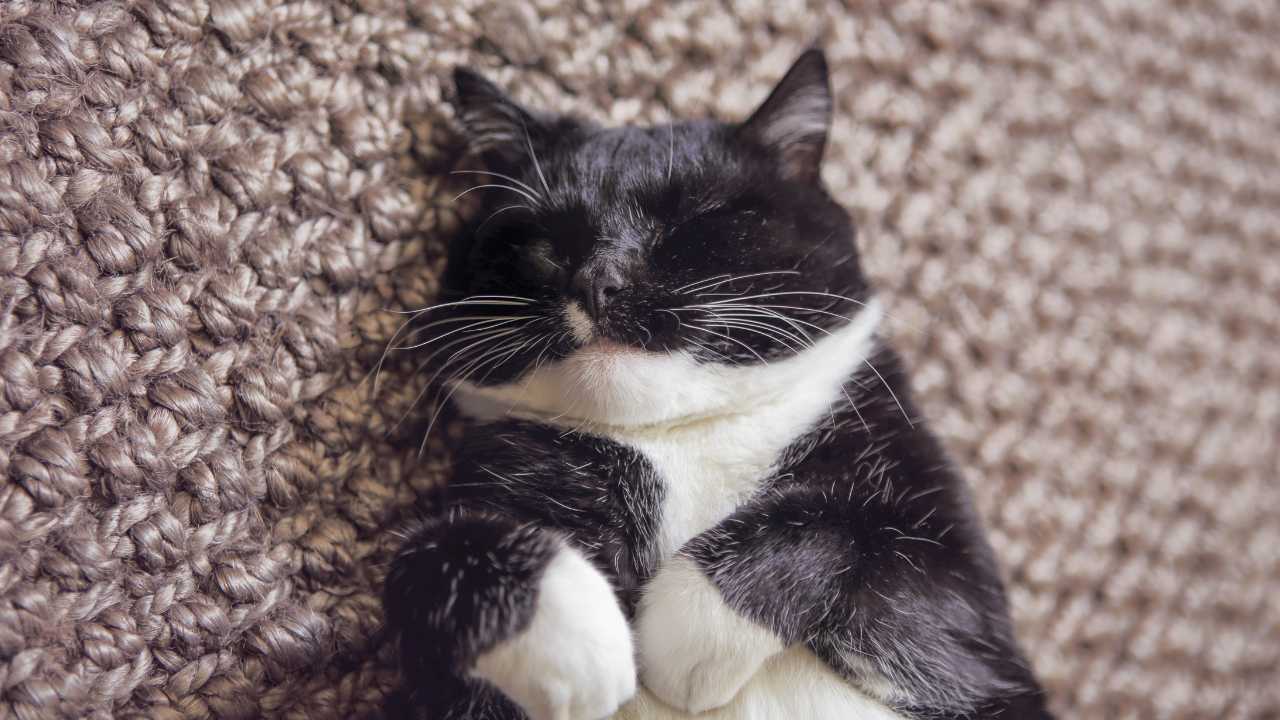
Just like humans, pets can dream during REM sleep. Research has shown that animals like cats and dogs experience dream-like brain activity similar to ours. So next time your pet is twitching or whimpering in their sleep, they may be off on a dream adventure!
11. Some pets, like cats, may snore
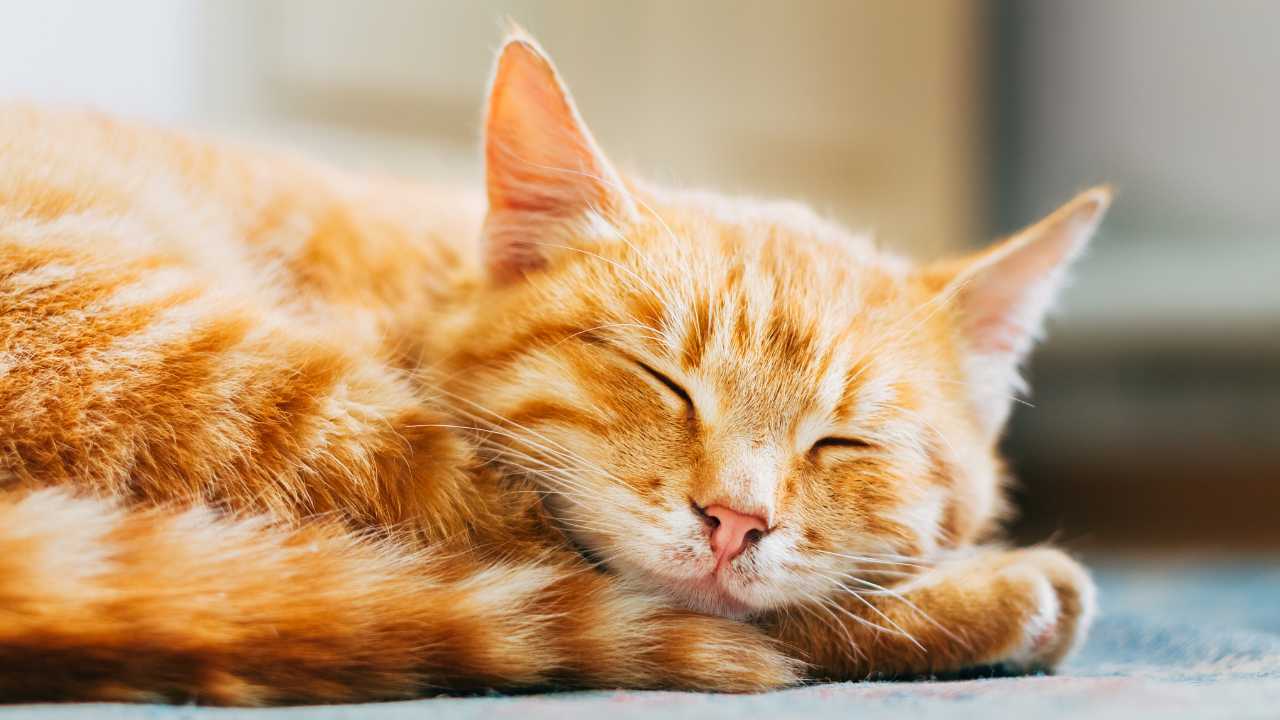
If you’ve ever heard your cat snoring, you’re not alone. While not as common as in dogs, some cats do snore, especially if they are overweight or have respiratory issues. If you’re concerned about your cat’s snoring, it’s best to check with your vet.
12. Proper sleep is essential for your pet’s health
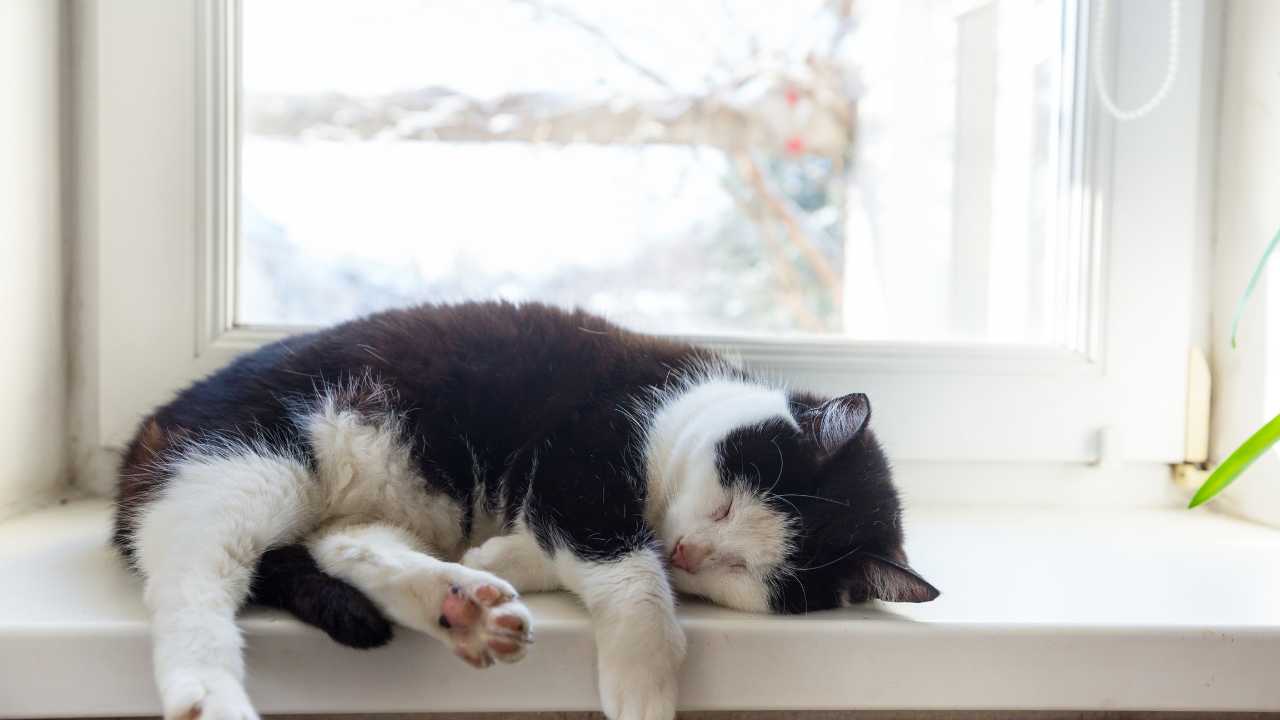
Just like with humans, getting enough quality sleep is essential for your pet’s overall health and wellbeing. Lack of sleep can lead to a weakened immune system, behavior problems, and even obesity. Make sure your pet has a comfortable, quiet place to sleep and stick to a consistent sleep schedule to keep them happy and healthy.
More From Outlandish Owl
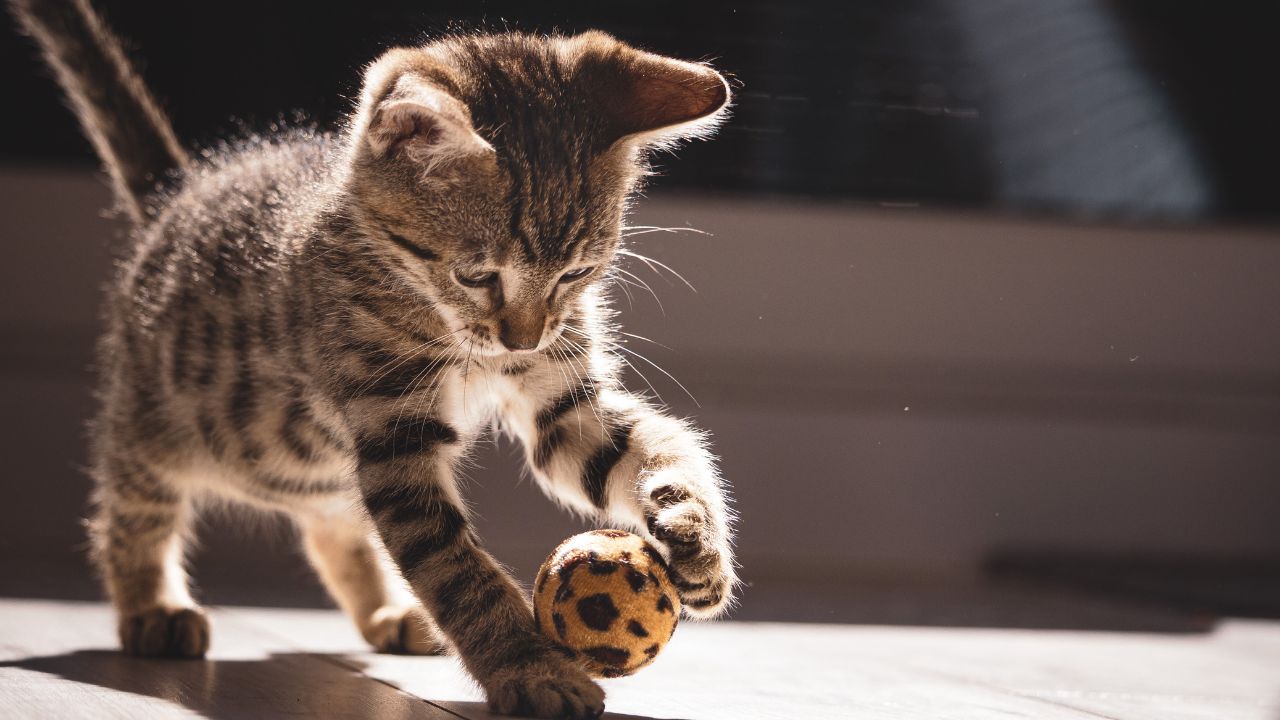
Is Your Cat Plotting Against You? 12 Signs They Might Be Mad 12 Things to Consider When Getting a Kitten 15 Benefits of Growing Up With Pets
Becky is a fervent wildlife enthusiast and pet care expert with a diploma in canine nutrition. Her love for animals stretches beyond the domestic, embracing the wild tapestry of global fauna. With over a decade of experience in animal welfare, Becky lends her expertise to OutlandishOwl through insightful articles, captivating wildlife information, and invaluable guidance on pet nutrition. Her work embodies a deep commitment to understanding the intricate lives of animals and a passion for educating others on sustaining natural habitats. Becky's hands-on conservation efforts and her knack for translating complex dietary science into practical pet feeding tips make her an indispensable voice for creatures great and small.

